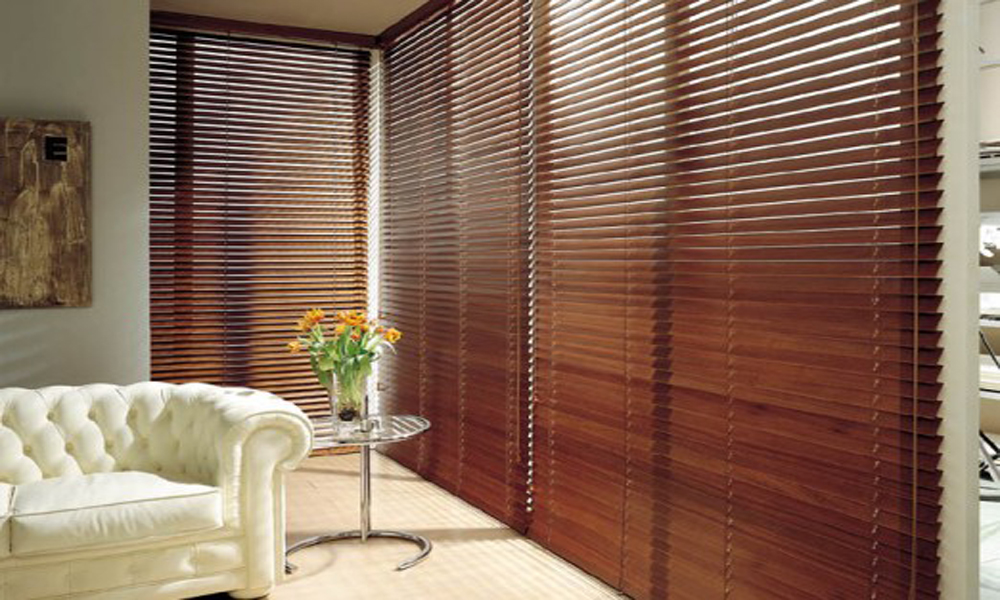There are many options when it comes to window treatments. Even if you’ve narrowed down your choices to blinds or shades, there are many types with pros and cons.
We have a comparison for you that you must choose between blinds and blinds in every room of your home.
What is the difference between blinds and Windows shades?
The blinds as “hard” Window shades coverings. They are slats that stack lengthwise or, if vertical, can be pulled to the side. The slats can also be tilted to allow light in while the treatment still covers the glass. Blinds are usually made of wood, engineered wood (made from a composite material), or woven wood, like these Hunter Douglas blinds.
The Shades are “soft” window coverings. They have no slats or openings between the slats and are made of a smooth fabric that can be folded up (or sometimes down) to completely reveal the window. Roman, roller, solar, and cellular are common types of shades and feature energy efficiency, varying levels of transparency, and sleek styles for light control and class.
Let’s look at a few pros and cons of each window treatment:
Blinds are easier to clean. Slatted blinds are easier to clean than fabric shades and are a great choice for those allergic to dust, hazards, or pollen. Blinds are cheaper. Blinds are on average one of the cheapest window coverings. For those looking for a financially conscious decision, they may be the most affordable option. Blinds are better at light control. Pop open the slats to light in or tilt to dim. Most common shades can be raised or closed, but have predefined levels of coverage, while blinds can be adjusted to control the flow of light.
The Shades are energy efficient. As a cellular “honeycomb” finish, the shades boast dual-comb technology that traps air inside the pockets, creating insulation, keeping hot summer air outside, and excellent air conditioning inside. Shades offer more privacy. Shades allow light to enter your home even when you’re downstairs and provide more privacy than most blinds. The blinds are either open and allow light and visibility inside, or closed and block the sun. Shades usually come in multiple styles. While blinds come in many styles and materials, shades usually have a more diverse range of fabrics, patterns, and colors.
What window treatment is best for each room?
Each room requires its unique window treatment. Some styles don’t work well in certain areas of your home or provide more benefits in one place over another. We are here to help you decide.
Bathroom
This intimate room of your home requires two very important needs: privacy and material that is resistant to moisture.
Window shades are best for creating a soft transfusion of light and blocking vision. In addition, honeycomb blinds breathe well in moisture.
Bedroom
The bedroom is a unique space because it requires both privacy and openness. Most of all, you need something that will block the sunrise in the morning and darken your room in the evening. Window blinds and blinds with a wide selection of fabrics, these shades suit any bedroom decor or paired curtain. Designer blinds even boast of being motorized and can be programmed to automatically rise and fall alongside your routine.
Kitchen
You want your kitchen to have an open, airy look, but still be able to block midday glare while washing dishes. Window treatments need to be thin but strong enough to block light and also tall enough to prevent cooking splatter.
Window shades are the best choice. The flat roman shades fold when lifted at the top to create a clustered, elegant look directly above the sink. Many fabrics have unique designs and patterns that accentuate a neutral kitchen space.
Living room
The living room is the central place of community in your home – a warm and welcoming space. You need a treatment that brings comfort while illuminating one of the largest rooms in your home.
Wooden blinds. Stylish hardwood slats are available in rich natural tones to create a relaxing atmosphere. They’re easy to clean to help you maintain a sharp look, and can be tilted to let in light while they’re still down.




